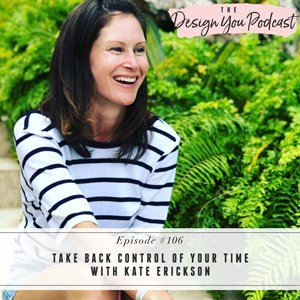
If you’ve been spending the last couple of weeks binge-watching Netflix and taking time off of your usual life and business and want to get back on track with your time management and productivity, this episode is for you. My guest this week is Kate Erickson, the engine at Entrepreneurs on Fire, an award-winning and top-ranked business podcast since 2012. She’s spoken on dozens of stages, has been podcasting herself since 2014, and helped launch the sixth most funded publishing campaign of all time on Kickstarter with The Freedom Journal.
If you’re unsure of where to start with creating a plan for yourself, be sure to tune in. Kate is breaking down the foundations of showing up for yourself to start getting stuff done. As creatives and small business owners, it can feel like it would take you a lifetime to get all your to-dos done, but Kate is showing us how to get clear on how long tasks should take and setting realistic expectations.
Join us this week as Kate shares her wisdom around taking back control of your time and using the time you have intentionally. Her expertise in time management and productivity is going to help you get your schedule dialed in and help you use this time that’s suddenly landed in your lap for your highest and best benefit.
If you want to keep this conversation going, you have to join my free Design You Podcast community on Facebook. We have great conversations over there about the podcast episodes and our podcast guests are in there too! So head on over and I’ll see you there!












